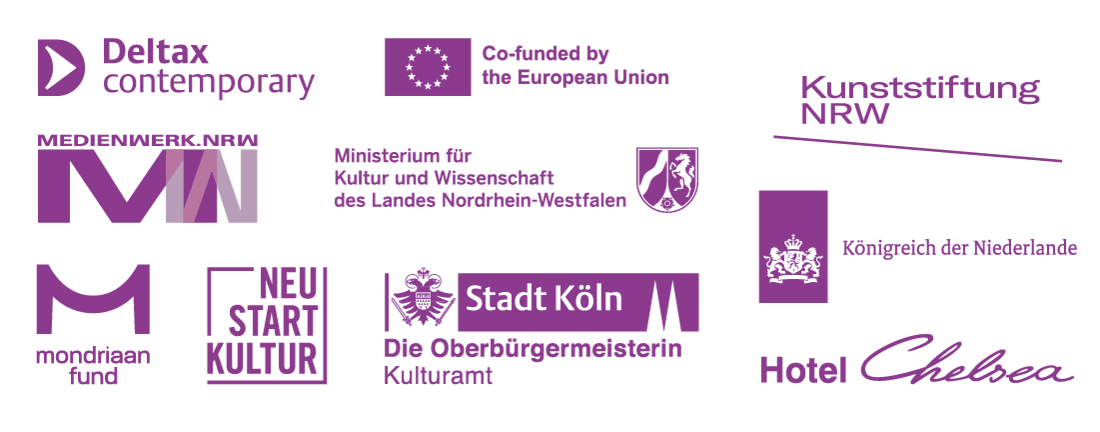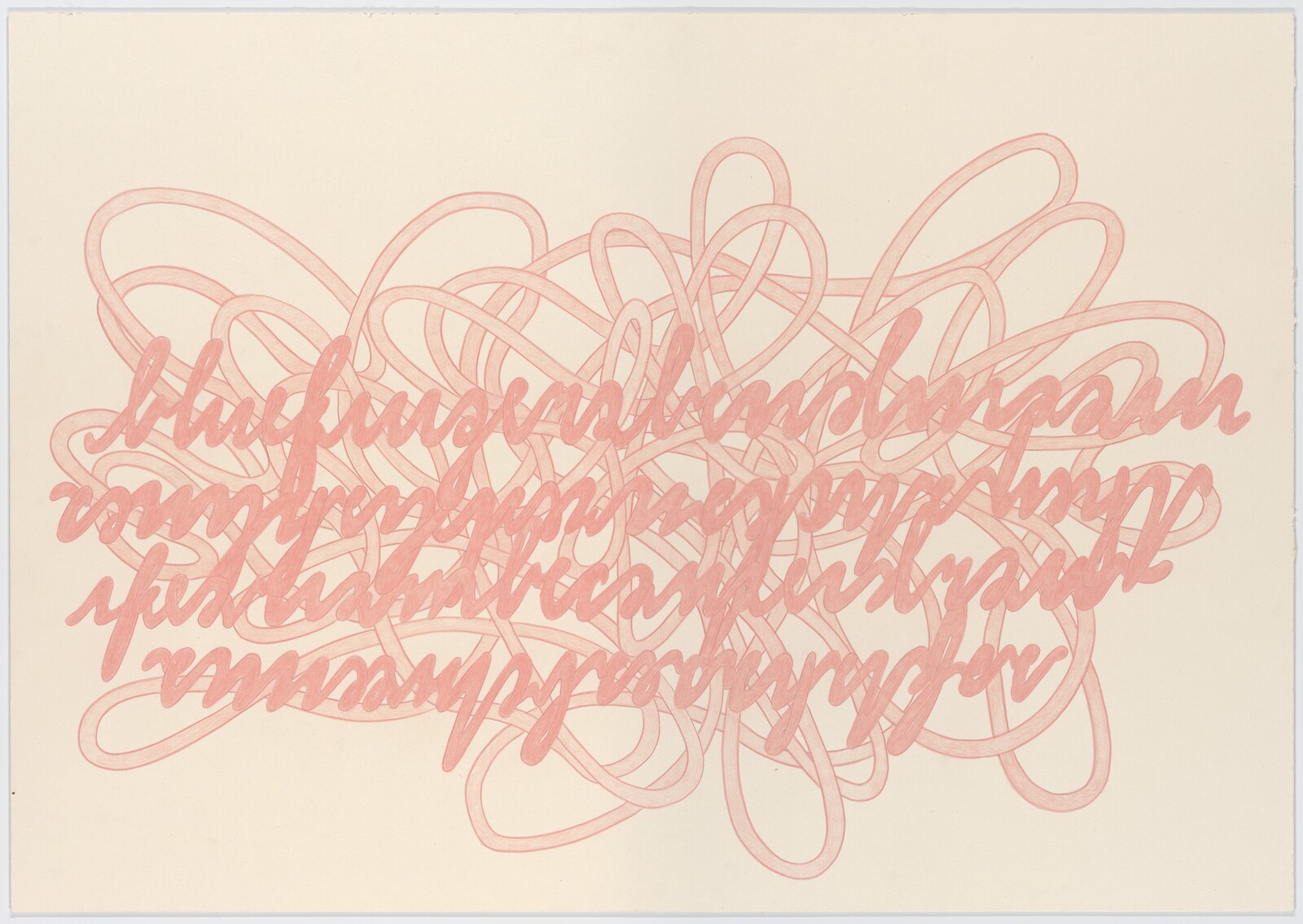February 4–April 30, 2023
Mauritiuswall 35
50676 Cologne
Germany
Hours: Thursday–Sunday 12–7pm
T +49 221 30234466
info@temporarygallery.org
Artists: Yin Aiwen, Nicole Baginski, Clementine Edwards, Robert Gabris, iSaAc Espinoza Hidrobo & Joanna Stange, Pauline Curnier Jardin & the Feel Good Cooperative, Krõõt Juurak & Alex Bailey, Sethembile Msezane, Rosalind Nashashibi, Lena Anouk Philipp, Rory Pilgrim, Liz Rosenfeld, Selma Selman, Jay Tan, Geo Wyex, and others
Curated by Kris Dittel and Aneta Rostkowska
Kinships are often thought of as blood relations, even more often understood with reference to the Western model of the nuclear family. This exhibition aims instead to contemplate and envisage various implications and forms of kinship, camaraderie, comradeship and belonging outside of the social reproduction of norms that the nuclear family entails.
As curators, we believe that kinship is not given, it is to be imagined and made. And this process of kin-making involves a critical revision of the promises and fantasies of the nuclear family, as well as a collective search for new possibilities and structures that are yet to emerge. The starting point of this project grew out of personal interests and experiences, in search of a variety of ways of establishing care and love relations and to imagine other kinds of sociability than the nuclear family structure.
The exhibition presents various temporal and spatial imaginations, disorientations and understandings of kin-relations. They prompt us to imagine the present and the future differently, to envision a world in which solidarity, interdependence and other forms of intimate association and belonging coexist, one where we can make space and time to see one another in our abundance.
Unruly Kinships reckons with the fact that no ideal version of kinship exists, there is no blueprint which relations can be modelled upon. And yet it strives towards perspectives and approaches that anticipate new solidarities, affinities and alliances, ones in which freedom in love and self-determination can be attainable for everyone. It is a leap into the unknown. How about then imagining collectively other forms of kinship? The unruly ones—not subjected to the imposed societal orders? Those which do not submit to known ways of living? They are disobedient, riotous, resourceful. How about reimagining kinship and asking again: How would we like to live? How would you like to live? The endeavour contemplates various possibilities of kin-making and care relations in our contemporary society. It presents various ways we relate to each other and the unexplored potentialities of these relations, starting from everyday interactions to artistic genealogies and queer lineages.
The artists participating in the exhibition and its public programme not only rethink but also re-enact “unruly kinships” themselves, albeit usually not in the known format of socially engaged art. They not only encourage us to reimagine existing kin-relations, they also search for different ways of sustaining them.
The exhibition includes a series of gatherings, which combine lectures, performances, readings, music and food in an informal atmosphere. We would like to envision the space of the art institution as a space in which thinking about kinship develops in a collective way, a space in which kinship relations are nurtured.
In the booklet accompanying the exhibition an infinite love letter by Kris Dittel provides a personal account of the Forms of Kinship study group series. It is followed by “Mayday” by Suzanna Slack, a fragmented memoir that touches upon the construction and violence of the nuclear family, gender and class. Alexis Pauline Gumb’s Black queer feminist genealogy puts forward the concept of revolutionary mothering (in a verb form) as opposed to motherhood as a status that is selectively granted. Only when more of us pursue “unruly kinships” can a larger societal change happen. This however would require governments to recognize the necessity and support different ways of living on a structural level. We hope that that text by Johanna Brenner expresses in which direction this could go.
A long version of the curatorial text can be found on our website here.

